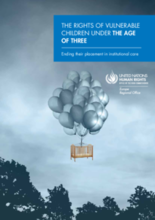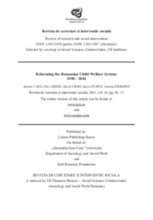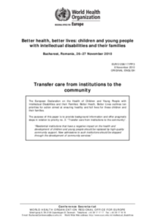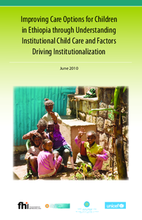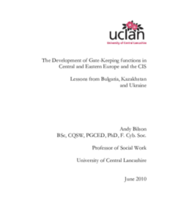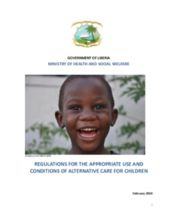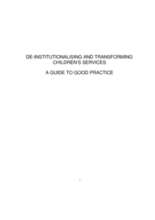Displaying 541 - 550 of 691
This document was commissioned by the Regional Office for Europe of the Office of the United Nations High Commissioner for Human Rights (ROE OHCHR). One of its aims was to stimulate discussion at the Sub-Regional Workshop on the Rights of Vulnerable Children Aged 0 to 3 Years in Prague on 22 November 2011.
This article reviews the series of major changes undergone by the Romanian child welfare system from 1990 to 2010, including the laws and governmental reform measures enacted, the shift in child population among various Romanian institutions and foster care homes, types of institutions available to children, level of care, shift in reasons for child abandonment, changes in ways children are routed through the system, and how these changes have effect children’s development, health, and psychological well-being.
This manual offers a training session targeted at policy makers, professionals and paraprofessionals who are already working on programs to support children without appropriate care, or who may begin work in this area. This workshop focuses on children in developing contexts, who require support within their families and those who need an alternative care placement.
The purpose of this paper is to provide background information and offer pragmatic steps in relation to priority no. 3 of the European Declaration on the Health of Children and Young People with Intellectual Disabilities and their Families: “To transfer care from institutions to the community”. The paper was produced in preparation for the conference in Bucharest, Romania 26-27 November, 2010.
Findings and recommendations of the first national study of its kind in Ethiopia to study child care institutions, institutionalized children, and factors driving institutionalization.
This paper is based on The Latin American Report: The situation of children in Latin America without parental care or at risk of losing it. Contexts, causes and responses, which was prepared using reports from 13 countries in the region. The paper gives an overview of the state of one of the most fundamental rights - the right to parental care, a keystone for the right to live in a family and a community.
This report looks at children who enter institutional care because of being without parental care, children with disabilities, child victims of abuse and children in conflict with the law. The aim is to identify key routes through the systems in order to understand the nature of the difficulties that lead children to be placed in institutions and thereby to be able to identify alternative strategies that will better support families and children.
This folder contains guidance and planning and assessment tools to implement reform of national social care financing from institutionalized care to a family and community-based framework.
Regulations and tools designed to create the basis for reforming welfare institutions for the safe and appropriate administration of alternative care.
Comprehensive manual on the theory and process of deinstitutionalization based on the experiences of childcare professionals across the European region.

